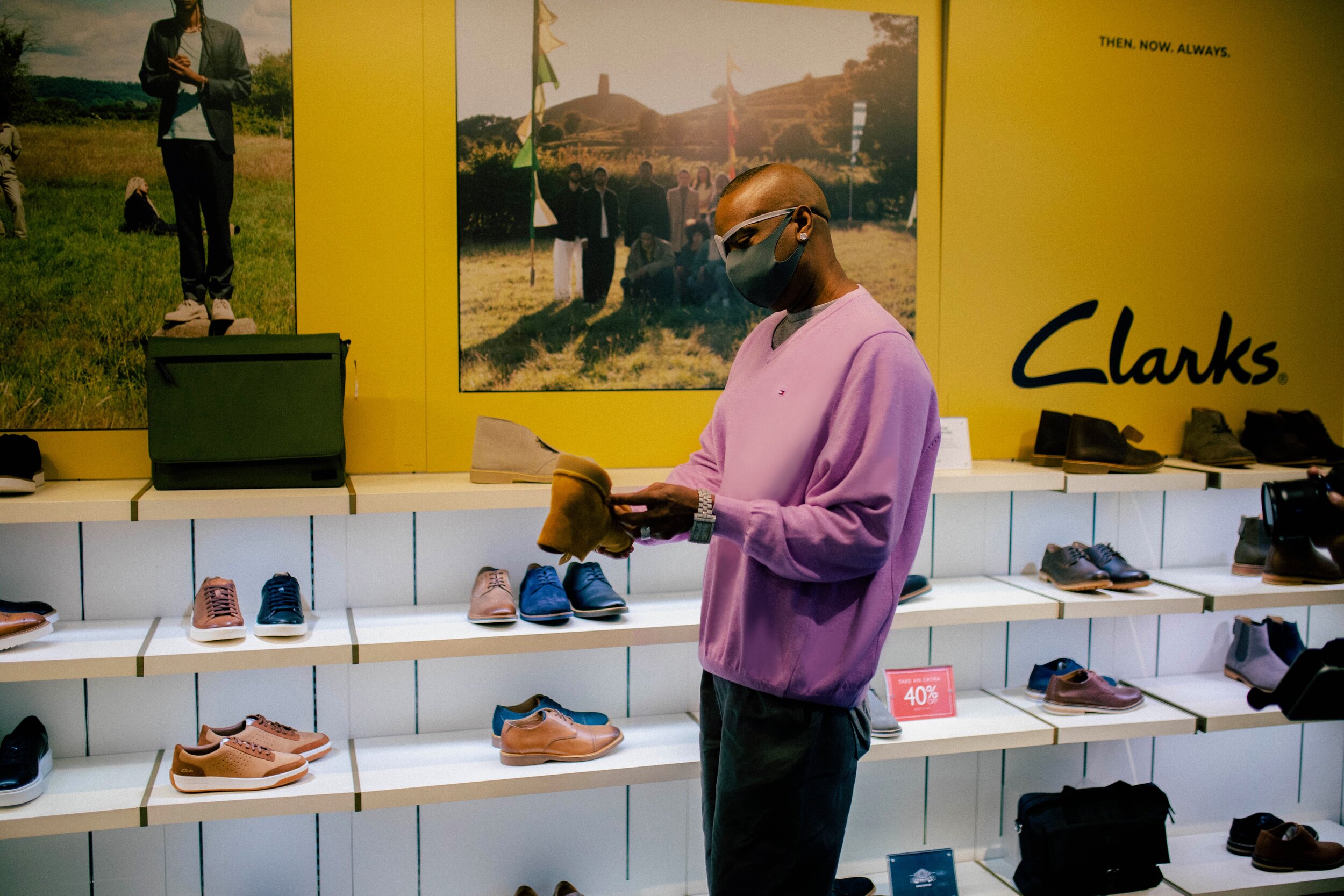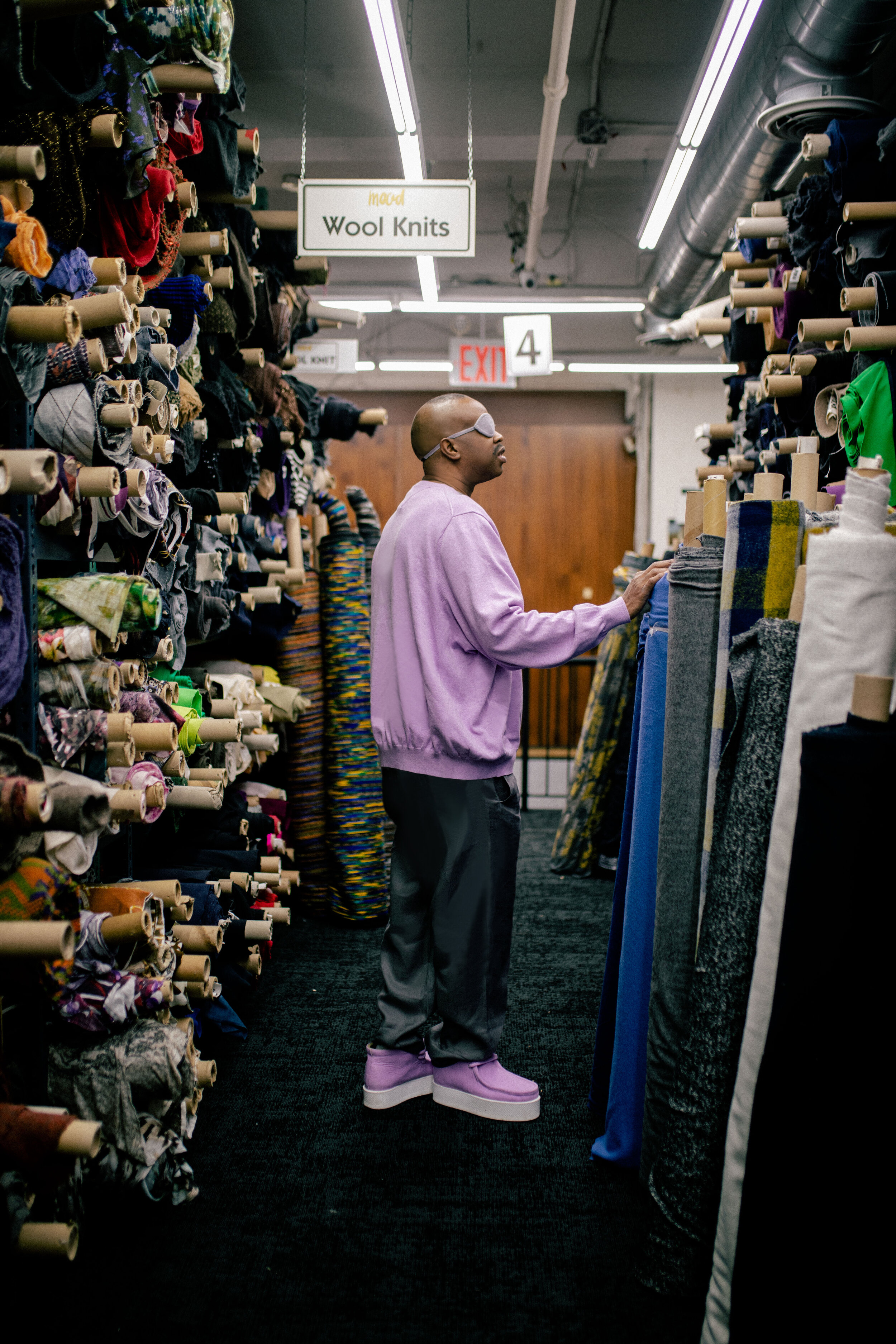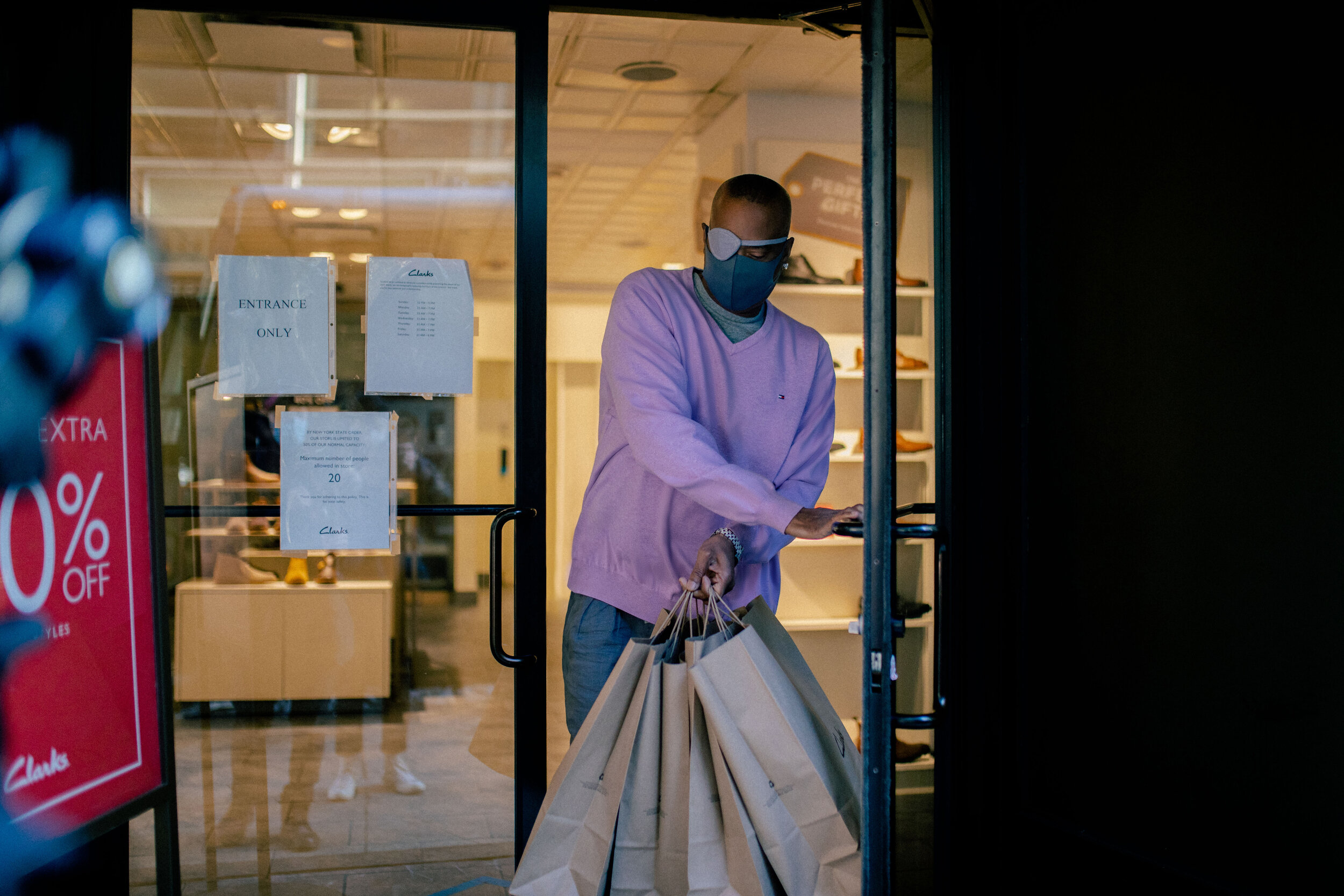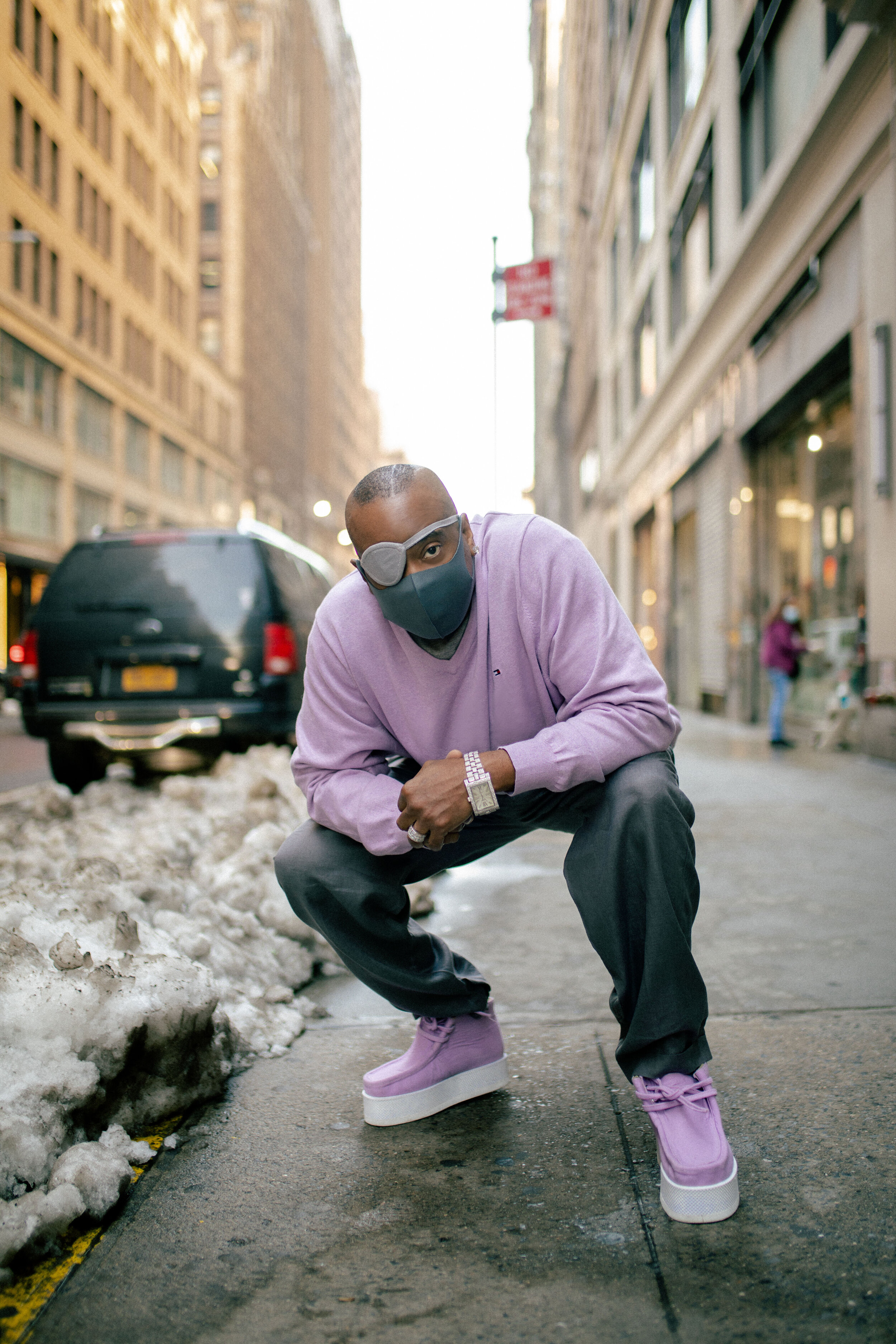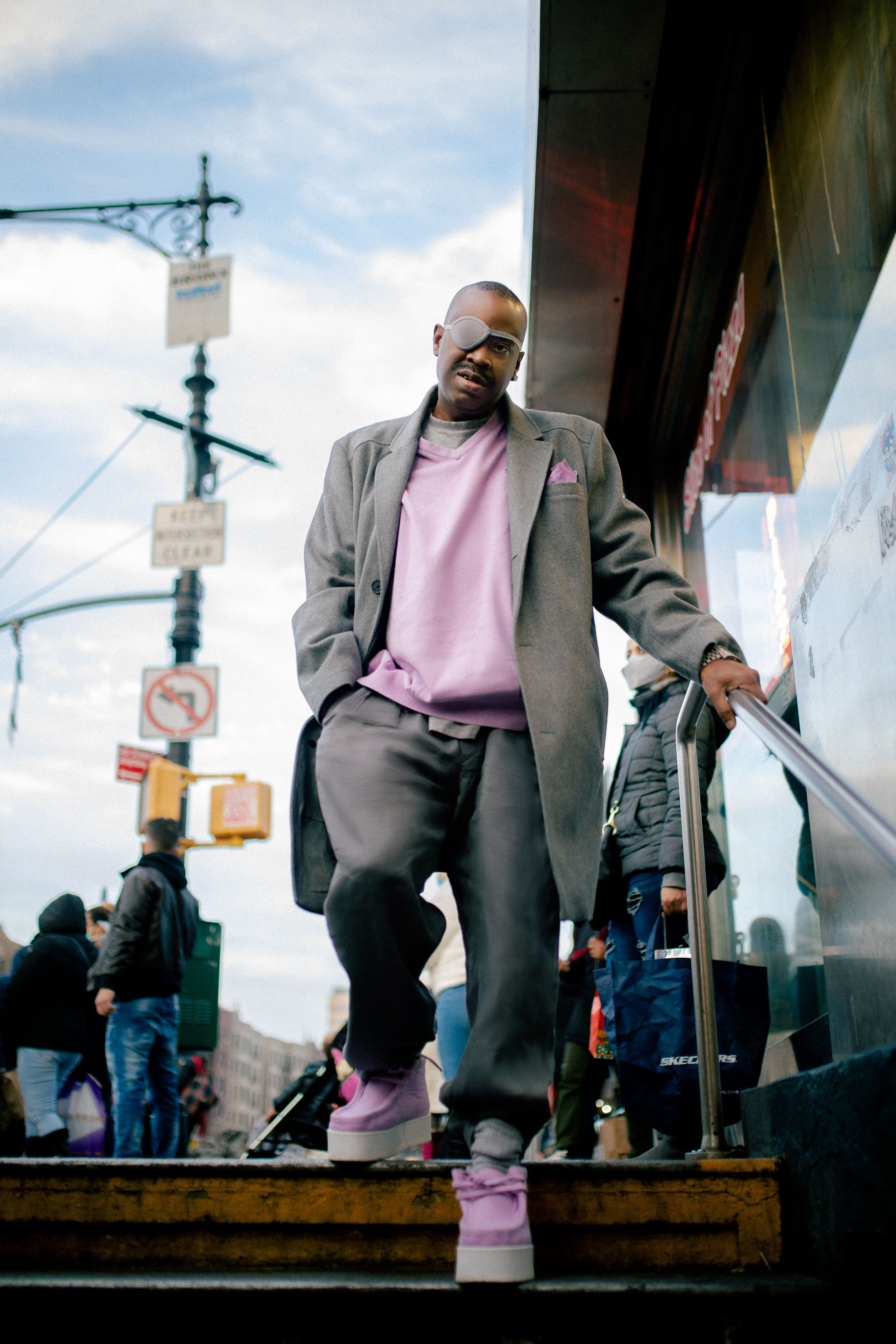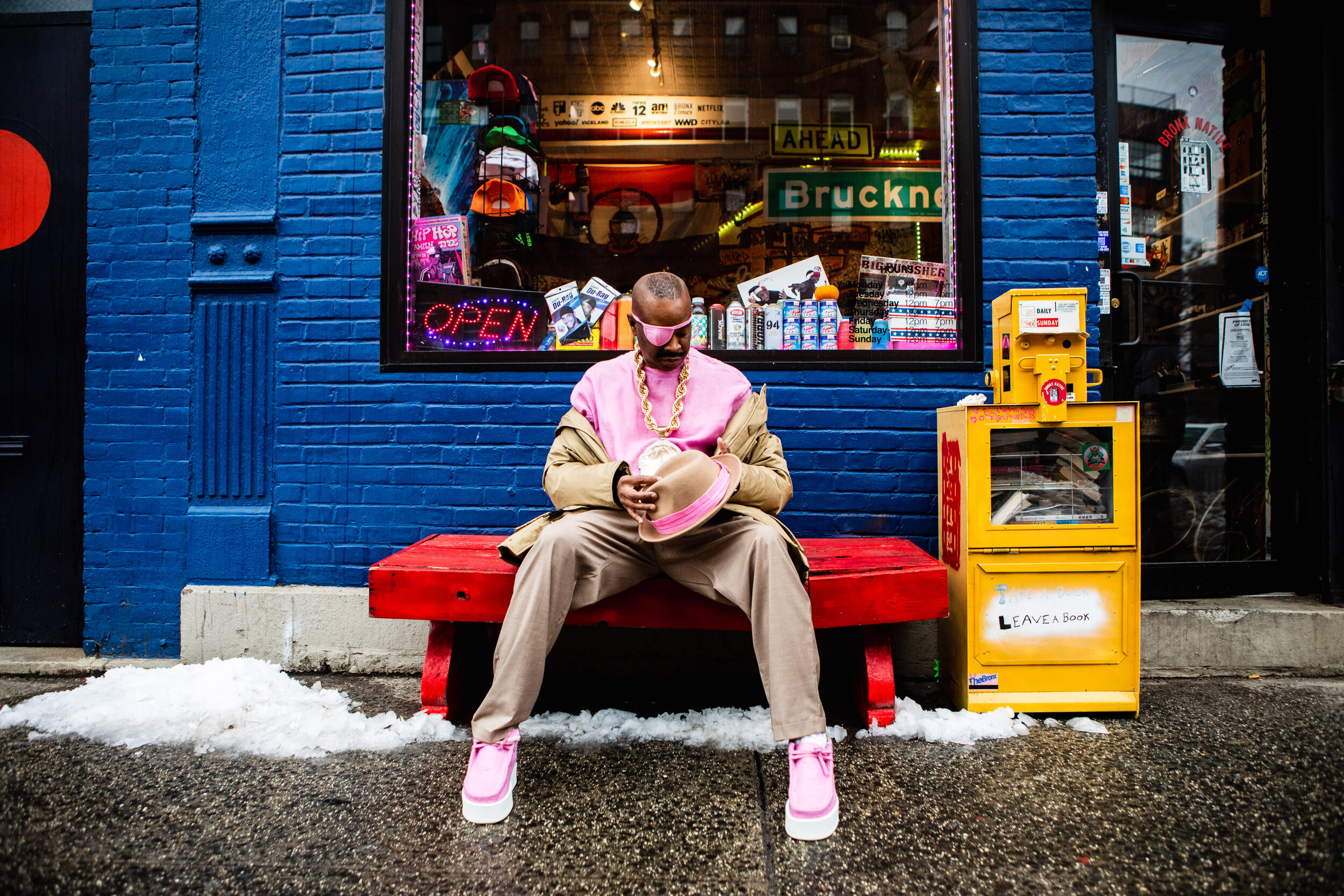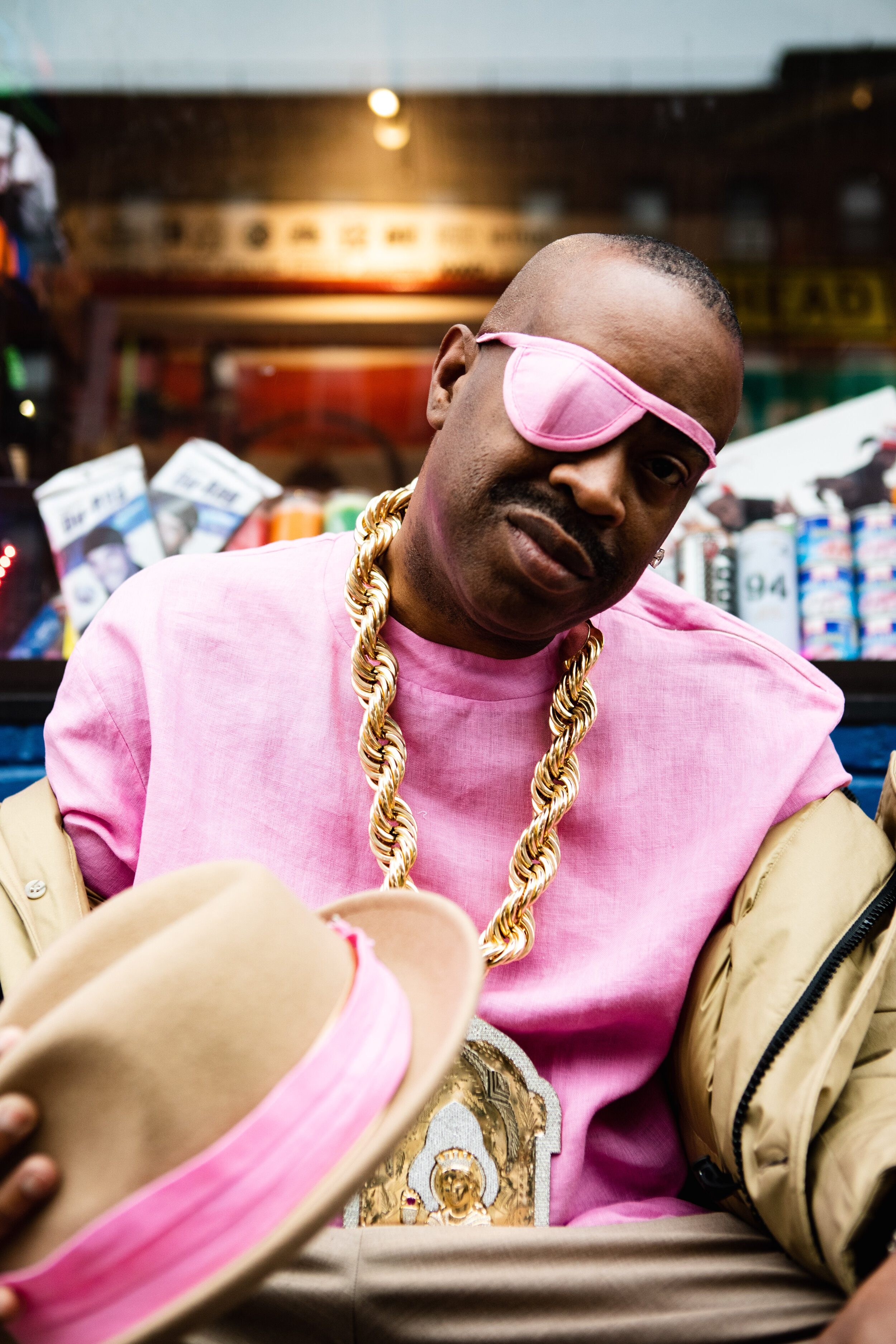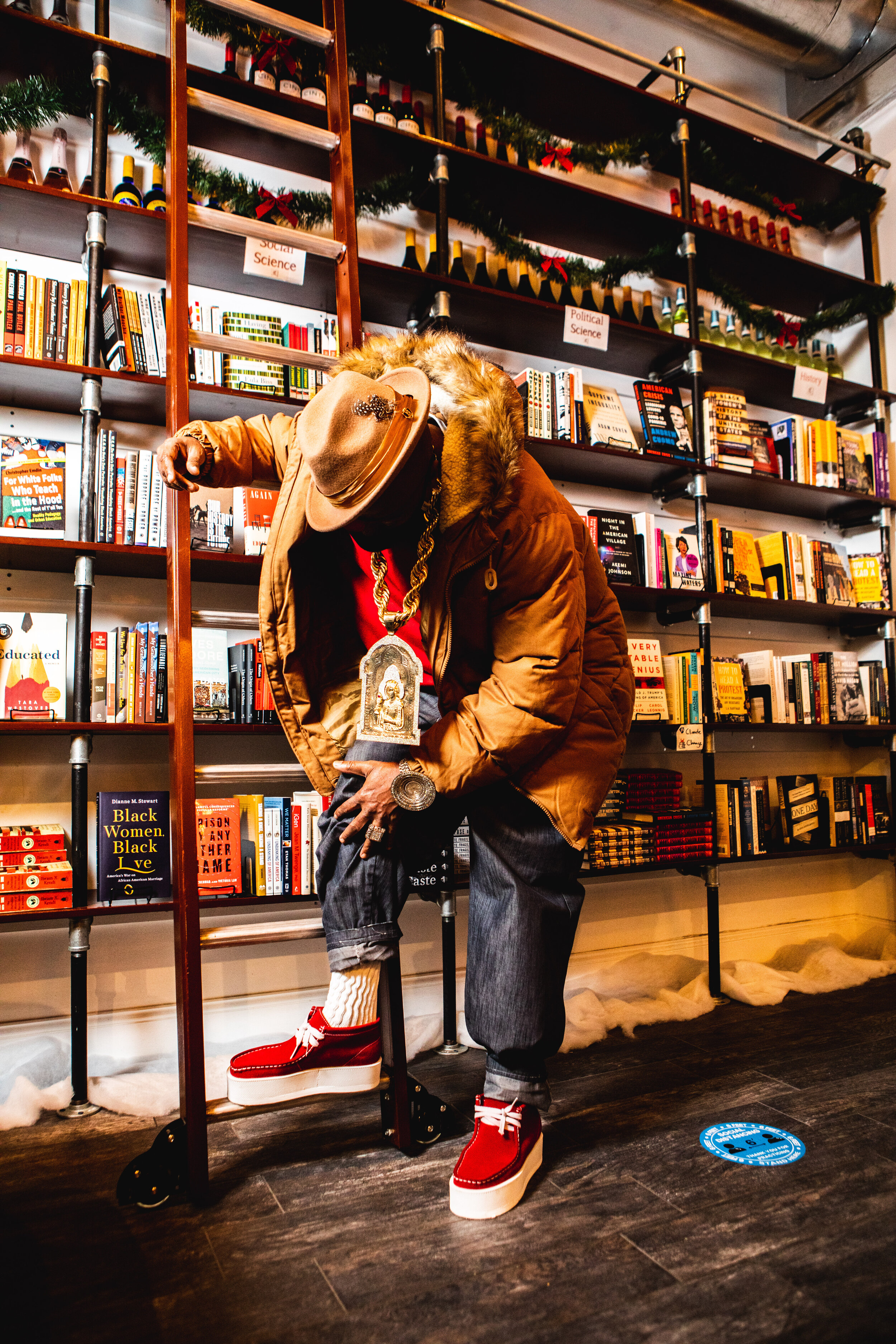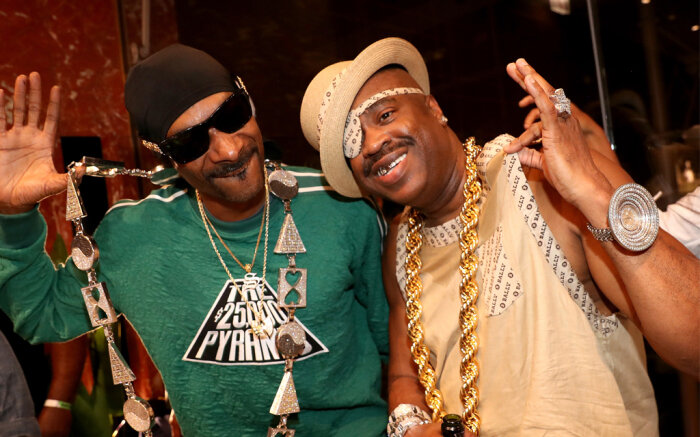“Thought Piece On The Barriers In Fashion”
Throughout my decades-long career as a rap artist, I’ve been a fashion trailblazer. My bond with fashion runs deep and started early from London, England to the North Bronx. My cousins and upbringing sparked my sense of style, and over time I added my own unique flair onto what they showed me as a young lad.
It’s hardly news that the African American community has always had an outsized creative impact on fashion. We are thirsty for what is new and fly due to the fact that we are underserved in the marketplace. When a brand that has stood the test of time – i.e., Clark Wallabee, Louis Vuitton, Gucci, Adidas – starts to get stale, we feel it is our job to give it a modern taste. We take the original item and enhance it according to our taste – cutting, painting, sewing. Whatever works and whatever it takes to refresh the brand.
When it comes to putting my look together, I’m a craftsman and I breathe fashion. I made wearing brands like Bally and Kangol cool, influencing consumer behavior along with an unprecedented spike in revenue sales. I also helped elevate Clarks the same way. Even today fans are quick to recognize my unique signature flavor when I wear a pair of Clark Wallabees; which for me is a classic blank canvas that I personally decorate, enhance and customize in various colors.
I design and coordinate all of my own stage-wear from head to toe, including my hats, shirts, slacks, tank tops, suits, jewelry, and eyepatches. However, I’m particularly fanatic about shoes and my appetite for footwear is insatiable. My fans have always been quick to recognize my unique innovations – like my unusually thick crepe sole, a custom touch I added to my own Wallys about 15 years ago.
Just last month when Clarks posted an unusually similar style to what I am simultaneously known for, my pedigree and cohorts were outraged, speaking up and weighing in on IG. Indeed, there is a feeling of fashion plagiarism in the air, and the time to mend and grow together is now.
According to Fashion United…the fashion industry’s market value is estimated at $406 billion. Global apparel retail market is estimated at $1.34 trillion. So where is the piece of the pie for Black creators? The main drive of brands to the forefront is the most dominant music in the world…. Hip Hop! In the fashion world, brand ownership, wealth and prosperities are a mirage for the Black and Brown community. The benefits only seem to be beneficial to the top of the food chain, diluting African American contribution to fashion.
The Black community has always been a fertile well for fashion. But Black cultural trendsetters aren’t readily given the credit they deserve. We all remember Dapper Dan’s experience with Gucci a few years ago. White fashion brands shut his legendary shop down at the height of its popularity, only to recently copy, stitch-for-stitch, what he pioneered forty years ago!
The internet erupted in dismay, and Gucci eventually offered Dan a seat at its table in an unprecedented partnership. However, Dapper Dan is one man in an industry where there isn’t a representative percentage of Black designers working and winning. Case in point: at last year’s Council for Designers of America awards gala, not one designer of color took home an award.
Sampling is an old production tool in Hip Hop. We zero in on especially tasty sections of other artists’ records, cut and paste them into our own, and adorn them with new lyrics. At first none of us bothered to acknowledge – or pay – the original artists. Several massive lawsuits later, the problem was resolved: the sampler would fairly credit and pay the original artist. Nevertheless, that’s certainly the way it now works in my career. I pay royalties to the artists I’ve sampled, and I’m paid royalties by artists who sample my recordings.
But that’s the music biz. It’s past time for the fashion business to come correct. Black music and Black swagger are what boost fashion brands to the stratosphere. Many conglomerate brands engage in free sampling of innovations created by our rich melanin and regurgitate it back to the community as a backhanded tribute. Just as Black Lives Matter, so does Black Creativity!
As Vice Magazine noted, “Supremacist capitalism exploits those they have marginalized, appropriates it for a mainstream audience, and shares none of the economic or cultural profits that these marginalized groups, often Black, create. Furthermore, there would be no possibility for an artistic production without a Black community.”
As protests over police brutality and racism have swept the nation in recent weeks, several companies began promoting messages of solidarity with Black Americans. But are fashion brands actually standing with artists and innovators such as myself when they unilaterally appropriate trends we Blacks create and cultivate?
Through the years I have had the pleasure of working with various luxury brands. However, temporary relationships that benefit one party more than the other is an outdated ideology that stagnates growth. It’s time for high-end fashion labels to fully engage those who provide feeling to their form and share the resulting profits fairly and more equally.
The South London rap legend talks making music again after a 20-year hiatus.
How Slick Rick Pioneered the Merge of Luxury and Street
Bally Celebrate Slick Rick’s Debut Album Anniversary With Star-Studded Party
Slick Rick is the Face and Flair of New MCM and Nordstrom Collaboration
Slick Rick on His Influence on Fashion and Culture + Why Clarks Wallabees Will Forever Be His Go-To Shoe
30 YEARS LATER, SLICK RICK’S CLOSET IS STILL RAMMED WITH COLOR & FUR
We Don't Cause Trouble We Don't Bother Nobody: Slick Rick

